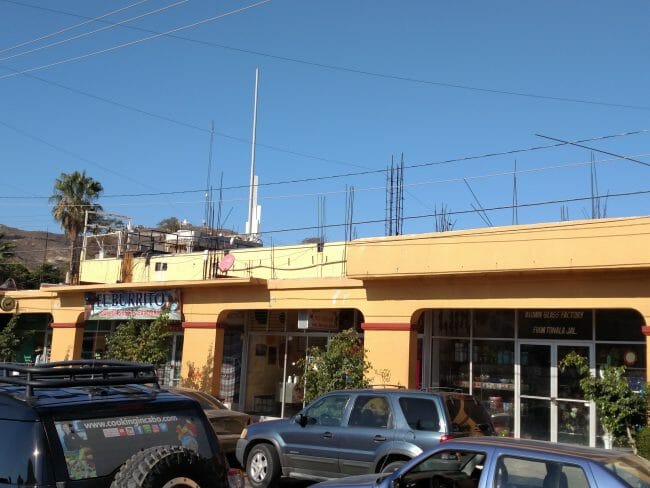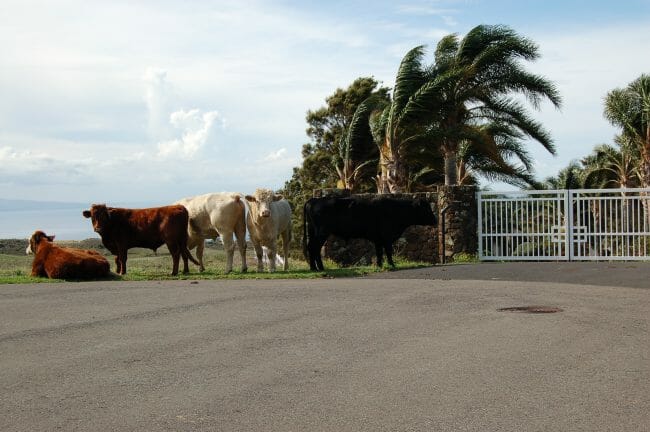The Power of Taxes To Bend Behavior, Often in Unexpected Ways
Taxes are incredibly powerful things. Tax something and you will get less of it. But you might also get more of something you did not expect. Taxes are the king of generating unintended consequences. A huge part of human ingenuity (unfortunately) seems to be constantly geared towards evading taxes. This is one reason I favor completely eliminating the corporate income tax -- way too many otherwise productive resources are marshaled towards managing the consequences of these taxes.
Last weekend I was in Cabo visiting a few friends and practicing my Spanish. Many of the buildings in town (at least away from the resort areas) look like this:
This is a small retail commercial building with going concerns on the first floor (actually finished pretty nicely) but rebar and stuff sticking up from what looks like an unfinished second floor. This is just one of many, many buildings that look like this. My friend, who has run a resort in Cabo for decades, asked me what I thought was going on. I said I assumed it was some sort of third world thing, perhaps a lack of financing that meant the first floor has to operate to generate cash flow for the second floor.
He answered that yes, there was very little financing for small business and real estate development so that sort of thing did happen. But what was really going on here is tax management. Until construction is completed, this structure is taxed as raw land rather than as a valuable commercial building. It was typical practice to get approved for a two story building in the original plans, then stop construction after completing the first floor (which was all that was wanted anyway) and act like the building is still under construction. Wala Voila (ed: lol, oops) -- ugly building but hefty tax reduction.
For those of you who want to write this off as a third world phenomenon, I will offer a similar example from personal experience. Some years ago, because I did not have enough value-destroying investments in my life, I bought some raw land in Hawaii. It is actually in a gated community, about half-built-out, but if you drive past my land you will likely see a cow on it. What is a cow doing in a gated community on residential land? Well, that is the point. Without the cow, the land gets taxed as residential land. With the cow, the land gets taxed as ranch land at perhaps a tenth the rate. The homeowners association helps those of us with raw land to split the cost of the cows.
Update: Here are the Hawaiian cows, next to one of my neighbor's front gate. While they are more attractive than the exposed rebar on the building in Cabo, they serve the same purpose.


> This is one reason I favor completely eliminating the corporate income tax -- way too many otherwise productive resources are marshaled towards managing the consequences of these taxes.
Wouldn't the same amount of otherwise productive resources be marshaled to manage the consequences of the resultant new tax code? And, assuming that it goes to the individual, wouldn't it actually consume a *larger* amount of resources (my assumption is that your average Fortune 500 company's tax department is a lot more efficient than I am at managing their taxes).
Ok - but let's say you don't actually change other parts of the tax code, leaving you with roughly a trillion dollar hole in federal revenue. What amount of resources would be used to actually implement a 1/3rd reduction in services? And what amount of resources would be used by society to provide whatever services that turned out to be "necessary" that were reduced?
You can't claim "law of unintended consequences" as an *impetus* to make a change - that's a perversion of the entire meaning! The entire point of it is that you can't predict the effects of a change on a complex system!